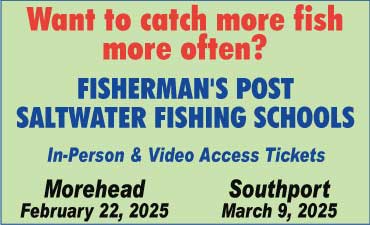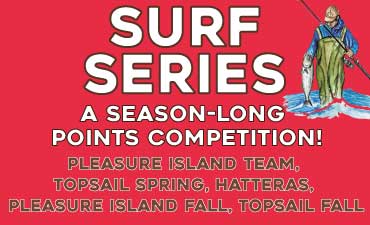Releases – July 12, 2012
Cape Fear Community College is currently seeking boats of all types for the annual CFCC Boat Show on July 21.
Now in its 13th year, the event is sponsored by the college’s boat building program to celebrate the craft of boat building and classic boat restoration. The college invites all professional and amateur boatbuilders to show off their work to fellow builders and the general public.
In the past, the show has featured boats of all kinds—from one person kayaks to large sailing vessels. According to CFCC boat building instructor Ed Verge, the enthusiasm of boat building is what makes this event a success.
Verge said that for the CFCC show, the end result isn’t as important as the pride of the builder and a willingness to share the experience with others.
Verge said that no matter what the finished product looks like, all boatbuilders have enthusiasm for what they’ve done and they love to talk about it.
“We are looking for all kinds of boats. It doesn’t matter if it was built in a professional shop or in a backyard,” Verge said.
He said that the show has had boats that get used every weekend and some that look like they’ve never touched the water.
The building experience is what matters, Verge said.
“Boat building is a craft that takes incredible amounts of dedication and patience, but in the end, the satisfaction is usually worth the price,” Verge said.
“There’s really nothing like the feeling of taking a boat you spent months or years working on out on the water for the first time,” Verge explained.
The cost to enter a boat in the show is $50 per entry. The cost includes a free t-shirt and admission to the after-show dinner. Professional vendors and sponsorships are also available. All proceeds from the event benefit student scholarships.
For more information about the CFCC Boat Show, contact Jason Rogers at (910) 362-7403 or email jrogers@cfcc.edu.
The South Atlantic Fishery Management Council is soliciting applications for seats currently available on its advisory panels. Working at the grass roots level, advisory panel members provide information and guidance in the development and implementation of federal fishery management plans.
The Council has 11 separate advisory panels composed of individuals who are engaged in the harvest of managed species, or are knowledgeable and interested in the conservation and management of the fishery or managed species. Members include recreational and commercial fishermen, seafood dealers and processors, non-governmental organizations (NGOs), scientists, and concerned citizens.
Advisory panel members are appointed by the Council and serve for a three-year period, based on the frequency of meetings. As those appointments expire, members currently serving on the AP may reapply for their positions. These seats also become open to new applicants. AP members generally meet no more than once or twice each year and are compensated for travel and per diem expenses for all meetings.
Applications are now being solicited for the following positions:
Coral Advisory Panel: (2) Coral Scientist Seats and (2) Marine Life/Aquaculture Seats; Dolphin Wahoo Advisory Panel: (1) Non-Government Organization (NGO) Seat; Habitat Advisory Panel: (1) GA Commercial and (1) FL Recreational Seat; King & Spanish Mackerel Advisory Panel: (1) NC Commercial Seat; Law Enforcement Advisory Panel: (1) Open Seat; Deepwater Shrimp Advisory Panel: (9) Open Seats; Shrimp Advisory Panel: (7) Open Seats + (1) NGO Seat; Snapper Grouper Advisory Panel: (6) Open Seats and (1) Wreckfish Sub-panel Seat; SEDAR Pool: Applicants appointed to the Southeast Data, Assessment and Review (SEDAR) Pool are eligible to serve on species-specific panels for future stock assessments.
If you are interested in serving as a member on the Council’s advisory panels, please submit an application to the South Atlantic Fishery Management Council, 4055 Faber Place Drive, Suite 201, North Charleston, SC 29405.
Applications can be obtained by contacting the Council office at (843) 571-4366 or toll free at (866) SAFMC-10. Application forms are also available online at www.safmc.net. Applicants are strongly encouraged to contact area Council representatives to discuss their interest in serving. Contact information for all Council members is available at www.safmc.net or through the Council office.
Advisory panel members will be selected during the next meeting of the South Atlantic Fishery Management Council, scheduled for September 10-14, 2012, in Charleston, SC. Applications must be received by August 15, 2012.
A bipartisan, bicameral agreement reached on the U.S. Transportation Bill reauthorization is drawing high praise from the nation’s sportfishing industry and the broader recreational fishing community. The compromise reached by members of the Transportation Bill conference committee includes two measures, the RESTORE the Gulf Coast Act and reauthorization of the Sport Fish Restoration and Boating Trust Fund, that together, will have a significant impact on fisheries conservation and habitat enhancement in the United States.
“The importance of this agreement to recreational fishing across the country, and in the Gulf of Mexico region in particular, cannot be overstated,” said American Sportfishing Association (ASA) Vice President Gordon Robertson. “We are extremely grateful that the members of the conference committee were able to reach a compromise that will benefit our nation’s fisheries resources and the anglers who enjoy them for years to come.”
The bill directs 80 percent of the Clean Water Act penalties charged to BP as a result of the April 2010 BP Deepwater Horizon oil spill to the restoration of the Gulf Coast environment and economy. Without Congressional action, these penalties, which are estimated to be between $5.4 and $21.1 billion, would go into the general treasury instead of towards Gulf recovery. The majority of these funds will be distributed to the five Gulf Coast states and the newly established Gulf Coast Ecosystem Restoration Council for economic and environmental restoration projects throughout the Gulf of Mexico region, such as wetlands restoration, construction of boat ramps and tourism promotion.
A separate section of the Transportation Bill reauthorizes the Sport Fish Restoration and Boating Trust Fund, commonly known as the Wallop-Breaux Act, which directs hundreds of millions of dollars annually to state fish and wildlife agencies’ fishing and boating programs. Funds for this important program are collected largely from the federal manufacturers excise taxes on fishing equipment and the motorboat fuel tax. The program had to be authorized as part of the Transportation Bill in order to capture the revenue from that part of the federal fuel tax attributable to motor boat and small engine use.
“Through the Sport Fish Restoration program, the sportfishing industry provides the backbone of fisheries management and conservation funding in this country,” said Robertson. “In these lean fiscal times, all federal programs are at risk, but ASA and our partners have diligently worked to ensure that the success and vitality of this program will remain secure.”





